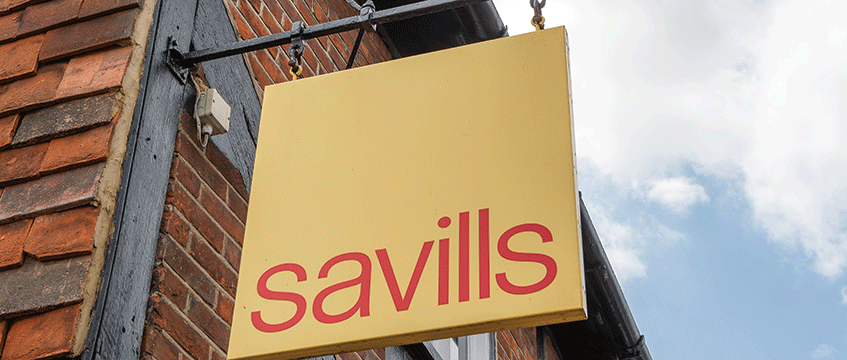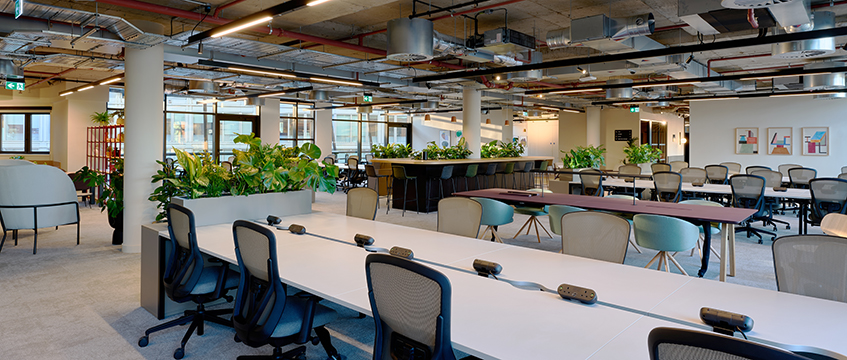‘We’ll come out stronger’: Savills bosses on keeping costs in check
The top team at Savills is eyeing opportunities to add more talent to the business if rivals struggle during a market downturn.
Announcing record half-year revenue of more than £1bn, the FTSE 250 firm acknowledged pressures – profit slipped from a year earlier – but chief executive Mark Ridley told EG that “confidence in the business continues”.
The firm is the latest agency to report in this earnings season and offer investors an outlook on the impact of ongoing market volatility during the remainder of the year. Several US-based firms have outlined plans to cut costs in the face of recessionary risks, and recruiters in the UK say a cooling of new hires is already apparent.
The top team at Savills is eyeing opportunities to add more talent to the business if rivals struggle during a market downturn.
Announcing record half-year revenue of more than £1bn, the FTSE 250 firm acknowledged pressures – profit slipped from a year earlier – but chief executive Mark Ridley told EG that “confidence in the business continues”.
The firm is the latest agency to report in this earnings season and offer investors an outlook on the impact of ongoing market volatility during the remainder of the year. Several US-based firms have outlined plans to cut costs in the face of recessionary risks, and recruiters in the UK say a cooling of new hires is already apparent.
In its half-year report, Savills highlighted staff cost inflation and an increase in discretionary costs as pushing the underlying profit margin down to 5.7% from 7.1% a year ago.
Reacting to his peers’ comments on slowing hiring, Ridley noted that a “significant amount” of the Savills workforce is in less transactional business lines for which “demand continues through thick and thin”.
“Then you start looking at staff attached to transactional markets, and we’ve always maintained a clear view that we should never be oversubscribed with people,” he said. “We want to make sure people are focused on markets where opportunities really reside. We’ve also taken the view that we grow our own quality by taking on more graduates and more apprentices than most of our peer group, continuing to develop talent within our business. That allows us to moderate some of those costs, and ensure that we are maintaining them at the appropriate levels.”
Ridley continued: “We probably go through that process that the US peers have been talking about every day of every week, not just because there are headwinds. We’ve got to justify why we are growing in those transactional markets. And some segments are – so life sciences, data centres, some of logistics and all things residential are areas we’re continuing to invest in. Other markets we may be taking a more sanguine view on. But clients need more help in more difficult markets, so you need the bench strength to give that help.”
Chief financial officer Simon Shaw said a “conservative” balance sheet meant that Savills faces less pressure than other agencies “when things get tricky for a short period”.
“Historically, we’ve always taken advantage of those moments to take on good people and benefit in the recovery phase,” he said. “We are not talking about a world in which there is massive speculative over-development. We’re not talking about a world in which there is the structural level of over-leverage that we have seen in some circumstances in the past. We’re talking about a world where the investment markets are adjusting to an increase in the risk-free rate.
“As far as we’re concerned, we’re going to plough on with continued growth and if we have to take a bit of a margin hit over the next quarter or next half a year, that’s OK. We can withstand that. We always come out stronger at the other end.”
On discretionary costs, Shaw added that some £30m of last year’s £200m profit was linked to a pandemic-fuelled plunge in travel and expenses spend. “We said those [costs] would come back and they are,” he said. “They have come back to what I think is probably a new normal, although that’s yet to be tested completely. I would suggest our travel, entertainment etc is going to settle somewhere down at about 75% of what we would have done pre-pandemic.”
To send feedback, e-mail tim.burke@eg.co.uk or tweet @_tim_burke or @EGPropertyNews
Image © Maureen McLean/Shutterstock











